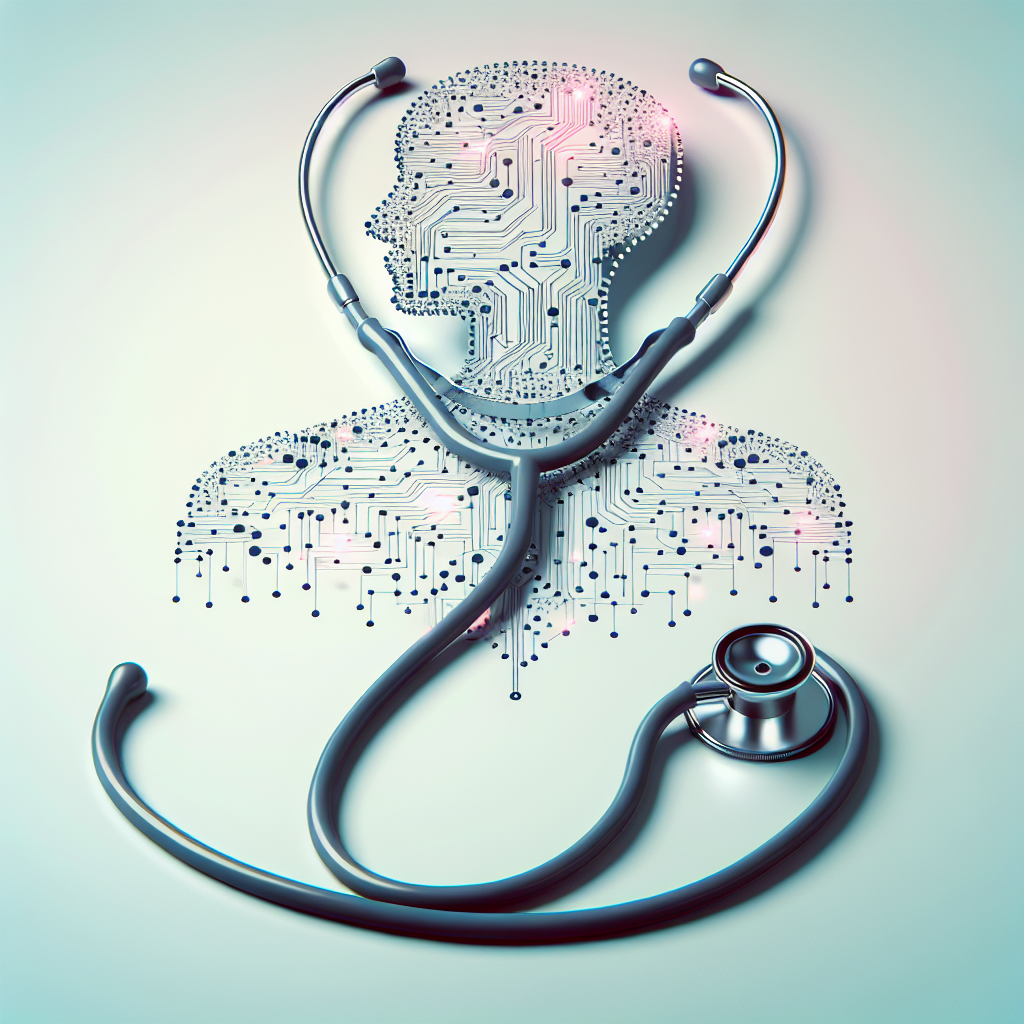In recent years, the healthcare industry has been experiencing a rapid transformation driven by advancements in technology, particularly in the field of artificial intelligence (AI). AI has the potential to revolutionize the way healthcare is delivered, making it more personalized and efficient. One of the key areas where AI is making a significant impact is in personalized healthcare.
Personalized healthcare, also known as precision medicine, is an approach to medical treatment that takes into account individual variations in genes, environment, and lifestyle. By leveraging AI technologies, healthcare providers can analyze vast amounts of data to tailor treatment plans to the specific needs of each patient. This allows for more accurate diagnosis, targeted therapies, and better outcomes.
The Role of AI in Personalized Healthcare
AI deployment in personalized healthcare has several key benefits, including:
1. Improved Diagnosis: AI algorithms can analyze complex medical data, such as genetic information, imaging scans, and patient records, to assist healthcare providers in making more accurate and timely diagnoses. This can lead to earlier detection of diseases and more effective treatment strategies.
2. Tailored Treatment Plans: By analyzing a patient’s genetic profile and other relevant data, AI can help healthcare providers develop personalized treatment plans that are more effective and have fewer side effects. This can lead to better outcomes for patients and reduce healthcare costs.
3. Predictive Analytics: AI can be used to predict which patients are at risk of developing certain diseases or complications based on their health data. This allows healthcare providers to intervene early and prevent or mitigate the progression of the disease.
4. Remote Monitoring: AI-powered devices and apps can monitor patients’ health in real-time, allowing for continuous tracking of vital signs and other health indicators. This can help patients and healthcare providers to better manage chronic conditions and prevent emergencies.
5. Drug Discovery: AI algorithms can analyze vast amounts of data to identify potential drug candidates and predict how they will interact with specific patients based on their genetic makeup. This can accelerate the drug discovery process and lead to more personalized treatment options.
FAQs about AI Deployment in Personalized Healthcare
Q: How does AI analyze medical data to personalize healthcare?
A: AI algorithms can analyze large volumes of medical data, such as genetic information, imaging scans, and patient records, to identify patterns and trends that can help healthcare providers make personalized treatment decisions. This data can be used to develop predictive models that can guide diagnosis, treatment, and monitoring of patients.
Q: Is AI deployment in personalized healthcare secure and private?
A: Healthcare providers must adhere to strict regulations and guidelines to ensure the security and privacy of patient data when deploying AI technologies. This includes implementing encryption, access controls, and other security measures to protect sensitive information. Patients have the right to know how their data is being used and to give consent for its use in personalized healthcare.
Q: How can AI help in early detection and prevention of diseases?
A: AI algorithms can analyze health data to identify patterns and trends that may indicate an increased risk of developing certain diseases. By monitoring patients’ health in real-time and using predictive analytics, healthcare providers can intervene early to prevent or mitigate the progression of the disease. This can lead to better outcomes and lower healthcare costs.
Q: What are the ethical considerations of AI deployment in personalized healthcare?
A: Ethical considerations of AI deployment in personalized healthcare include issues related to data privacy, consent, bias, and transparency. Healthcare providers must ensure that patient data is used ethically and responsibly, and that AI algorithms are trained on diverse and representative datasets to avoid bias. Transparency about how AI technologies are being used and ensuring patient consent are also important ethical considerations.
Q: How can patients benefit from AI deployment in personalized healthcare?
A: Patients can benefit from AI deployment in personalized healthcare by receiving more accurate diagnoses, tailored treatment plans, and proactive monitoring of their health. This can lead to better outcomes, reduced healthcare costs, and improved quality of life. Patients can also have more control over their health data and treatment decisions, leading to a more personalized and patient-centered healthcare experience.
In conclusion, AI deployment in personalized healthcare has the potential to revolutionize the way healthcare is delivered, making it more precise, efficient, and patient-centered. By leveraging AI technologies to analyze vast amounts of medical data, healthcare providers can tailor treatment plans to the specific needs of each patient, leading to better outcomes and improved quality of care. As AI continues to evolve and become more integrated into healthcare systems, it is important for healthcare providers to consider the ethical implications and ensure the security and privacy of patient data. Ultimately, AI deployment in personalized healthcare has the potential to transform the healthcare industry and improve the lives of patients around the world.

